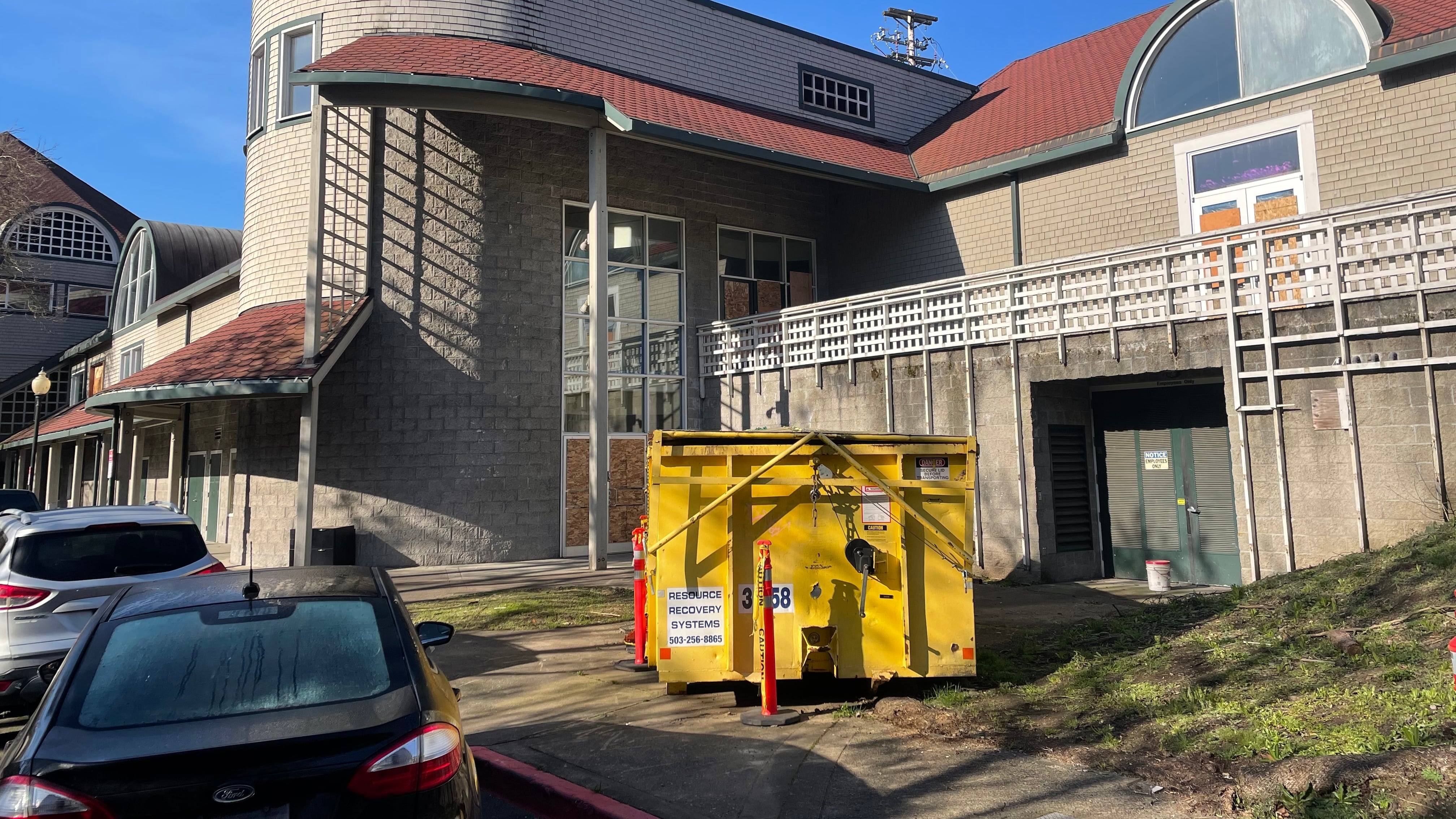- ADDRESS: 1845 S Harbor Place
- YEAR BUILT: 1986
- SQUARE FOOTAGE: 20,520
- MARKET VALUE: $8.42 million
- OWNER: NBP 0150 S Montgomery LLC
- HOW LONG IT’S BEEN EMPTY: Nine years
- WHY IT’S EMPTY: Permitting and the market
It’s been nearly a decade since anybody bounced a basketball, swam a lap or drank a smoothie in what was once among the city’s most popular gyms, the RiverPlace Athletic Club.
“There was a great sense of community there,” says Doug Bean, a longtime commercial realtor who was a fixture at RiverPlace for many years. “I really miss it.”
The RAC, as people called it (perhaps in joking reference to the invitation-only Multnomah Athletic Club) went dark in 2015 after a slide into financial difficulties. Its closure marked the end of an unusual history.
The club opened as part of the YMCA in 1986 but amid financial struggles, the Y closed it down and bought its way out of a 10-year lease. Private owners then ran the club for most of the next three decades.
Then in July 2015, investors led by Nicholas Berggruen’s NBP Capital purchased the RiverPlace Athletic Club for $9.85 million. Berggruen, whom the financial press dubbed “the homeless billionaire” because he sold his homes and lived in hotels and on his Gulfstream IV jet, invested all over the world, but had a fondness for Oregon. In 2007, he invested $80 million in a Columbia County ethanol plant that ran for just seven months before flaming out (“Corndoggle,” WW, April 7, 2009). That failure didn’t dim Berggruen’s appetite for Oregon, however. Through his company NPB Capital and various affiliates, he built a large real estate portfolio in Portland.
RiverPlace was supposed to be the crown jewel of a sprawling redevelopment of low-rise townhouses. Artist’s renderings showed the property transformed into 2 or 3 million feet of new mixed-use space, including 30-story high-rise residential towers.
But the entity working on that first tower, Eastbank Development, put the project on hold last October, complaining to the Portland Business Journal that the city’s permitting process took so long that the company missed its window of opportunity.
“The design and development team was moving at light speed relatively, to update ever-changing direction from design review hearing comments,” Eastbank’s Aaron Jones told the Business Journal. “How can you [not] help but feel like the process is broken?”
Jones and Eastbank did not respond to requests for comment, but Ken Ray, a spokesman for the city’s Bureau of Development Services, pushed back on Jones’ remarks.
“The development team could have developed the site any time after its purchase,” Ray says. “However, the developer chose to extend the process by asking the City Council for more height and floor-area ratio, requiring legislative approval that also takes time.”
In any case, allowing RiverPlace to remain vacant is expensive, even for a billionaire. In addition to the opportunity cost of having $10 million tied up in the property and all the planning and design costs, taxes on the vacant club ran $159,000 this year—with no monthly club dues to offset them.
Every week, WW examines one mysteriously vacant property in the city of Portland, explains why it’s empty, and considers what might arrive there next. Send addresses to newstips@wweek.com.

